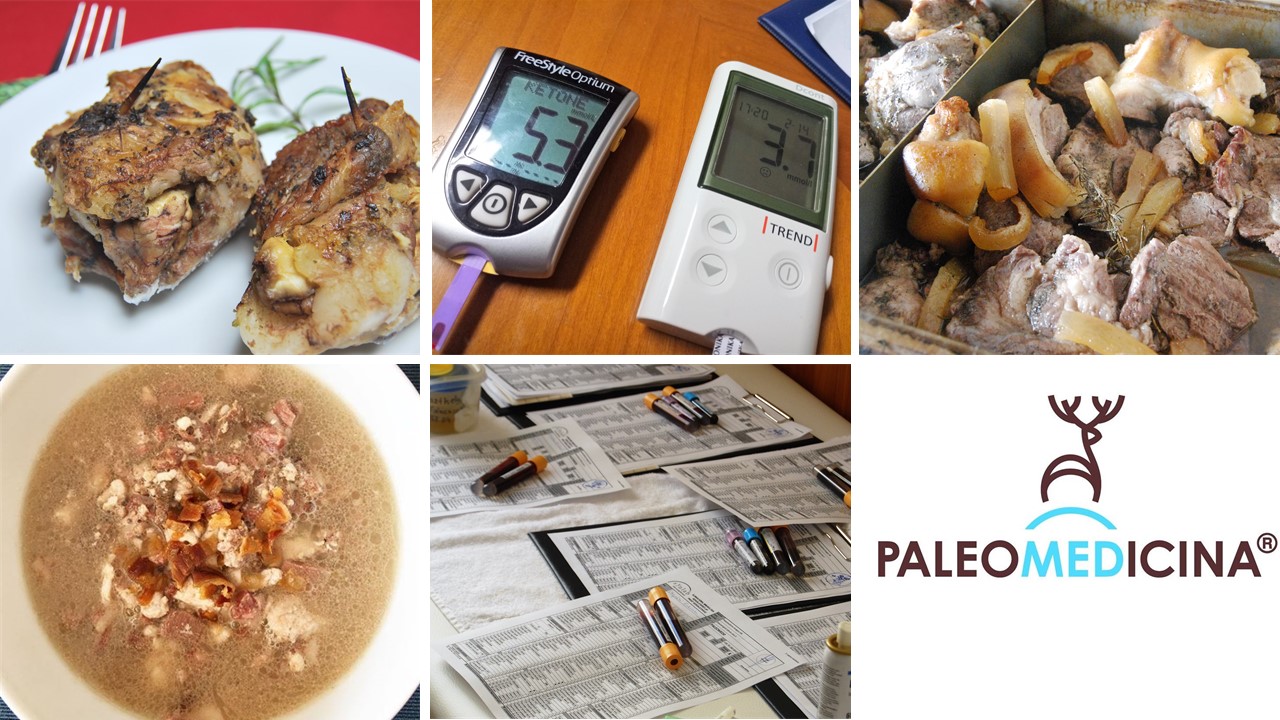
The paleolithic ketogenic diet is the intellectual property of Paleomedicina Hungary - ICMNI. It originates from the colleagues of Paleomedicina Hungary - ICMNI: Dr. Zsófia Clemens, brain researcher and biologist; and Dr. Csaba Tóth, physician and researcher.
Why is the paleolithic ketogenic diet (PKD) effective? Why is the PKD the effective diet?
The paleolithic ketogenic diet is a healthy diet tailored to the biology of the human species regardless of age, gender, religion, skin colour, nationality, and country of origin. The paleolithic ketogenic diet is biologically the most fitting diet for humans, the deviation from which is the cause of almost all chronic medical conditions. Fortunately, the regenerative capacity of the human body is enormous, so if you have an established disease but you switch to our biological diet, the chances of recovery are good. In most cases, permanent recovery of patients occurs, and in some other cases, the condition may be stabilized followed by slow improvement.
How long does the recovery take?
The extent and speed of recovery largely depend on the type of tissue affected by the disease. The faster the cellular renewal and tissue replacement process is, the faster the healing process occurs. The fastest renewal rate is typical for skin and intestinal tissues (only 5-21 days), and accordingly, the regeneration of these tissues is the fastest. The regeneration of nerve tissues is the slowest, therefore, neurodegenerative diseases respond relatively slowly, which means that regeneration may take months or years.
For which age groups is the paleolithic ketogenic diet recommended?
Contrary to common belief, the nutritional needs of humankind are not gender- or age-specific, therefore, the paleolithic ketogenic diet can be implemented at any age, from complementary feeding in infancy to old age.
Is the paleolithic ketogenic diet difficult?
The paleolithic ketogenic diet does not cause any difficulties for the human body in biological terms, but due to the conditioned elements of our diet and our addictions to a previously unhealthy diet, psychological difficulties can be expected. This, however, has nothing to do with our biology. Our physiology and psychology must be treated separately. Our biological needs are given, and we cannot change that. Our psychological attitude, however, can be changed, and we need to change it, otherwise, we will not heal completely.
How fast is the diet?
You don’t have to wait for long for the first positive effects. The diet results in a spectacular improvement in weeks. When starting the diet, there is a transition period, which may be a few days, after which the positive effects will become obvious.
In case of which diseases is the paleolithic ketogenic diet effective?
Below you’ll find a list of diseases in case of which the paleolithic ketogenic diet proves to be effective. We have encountered with almost every medical condition. Yet, infectious and traumatic diseases, as well as surgical cases, fall into a separate category. Of course, there are always exceptions, rare diseases, and rare medical conditions. Therefore, in individual cases, we will only be able to respond in light of the full knowledge of the medical records. However, we can safely say that if you have a non-genetic chronic medical condition, we can either cure it or we can improve it significantly if you follow our guidelines.
Below you can read an extensive but not full list of the diseases we most often come across and treat with success:
• Metabolic syndrome conditions
Type 2 diabetes
Obesity
Hypertension
• Autoimmune diseases
Autoimmune thyroiditis (Hashimoto's thyroiditis)
Crohn's disease
Ulcerative colitis
Eczema
Psoriasis
Rheumatoid arthritis
Idiopathic thrombocytopenic purpura (ITP)
Polycystic ovary syndrome (PCOS)
Immune hepatitis
Lupus
Sarcoidosis
Scleroderma
Multiple sclerosis
Wegener's granulomatosis and other granulomatous
Myasthenia gravis
Pernicious anemia
Type 1 diabetes mellitus (T1DM)
LADA diabetes
Autoimmune encephalitis
Anemia pernicious
Antiphospholipid syndrome (APS)
Aplastic anemia
Temporal arteritis
Celiac disease,
Guillain-Barré syndrome (GBS)
Hashimoto's thyroiditis
Graves' disease
Myasthenia gravis
Pemphigus vulgaris
Primary biliary cirrhosis (PBC)
Sjogren's syndrome
Multiple sclerosis (MS)
Ankylosing spondylitis (Bechterew's disease)
Systemic Lupus Erythematosus (SLE)
Wegener's granulomatosis
Lichen plans
Alopecia universalis
Behcet's disease
Neuromyotonia
• Cancers
Rectal cancer
Colon cancer
Hodgkin's lymphoma
Non-Hodgkin's Lymphoma
Chronic lymphocytic leukemia
Acute lymphoblastic leukemia
Renal cancer
Liver cancer
Brain cancer
Melanoma
Breast cancer
Cervical intraepithelial neoplasia (CIN)
Thyroid cancer
Lung cancer
Bronchial cancer
Larynx cancer
Soft palate cancer
Pancreatic tumor
Biliary tumors
Esophagus cancer
Prostate cancer
Metastatic cancer
• Other Conditions
Sleep apnea
Sleep disorders
Restless legs syndrome (RLS)
PCOS syndrome
Female infertility
Male infertility
Transient global amnesia
Pickwick syndrome
Toxicosis of pregnancy
Gestational diabetes
Coronary artery bypass surgery
Paranoid schizophrenia
Panic disorder
Gingivitis
Hyperactivity, ADHD
Autism
Gilbert's syndrome
Chronic fatigue syndrome (CFS)
Migraine
Allergy
Reflux
Breast and ovary cysts
Epilepsy (generalized epilepsy, localization-related epilepsy, other forms of epilepsy)
Depression
Anxiety
Learning difficulties
Dry eye syndrome
Myopathy
Prostate hypertrophy
Renal failure
All forms of anemia
Upper respiratory tract infections
Leg ulcers
Uncertain abdominal complaints
Cystic diseases
Overmedicated conditions
The Paleomedicina approach is that of evolutionary medicine which has a wholly scientific basis. We do not use naturopathic methods and we distance ourselves from such methods. Our scientific papers published in international medical journals can be viewed here.
2020-01-17
 Rehabilitáció csak online elérhető
Rehabilitáció csak online elérhető
 E-mail: paleomedicina@gmail.com
E-mail: paleomedicina@gmail.com


